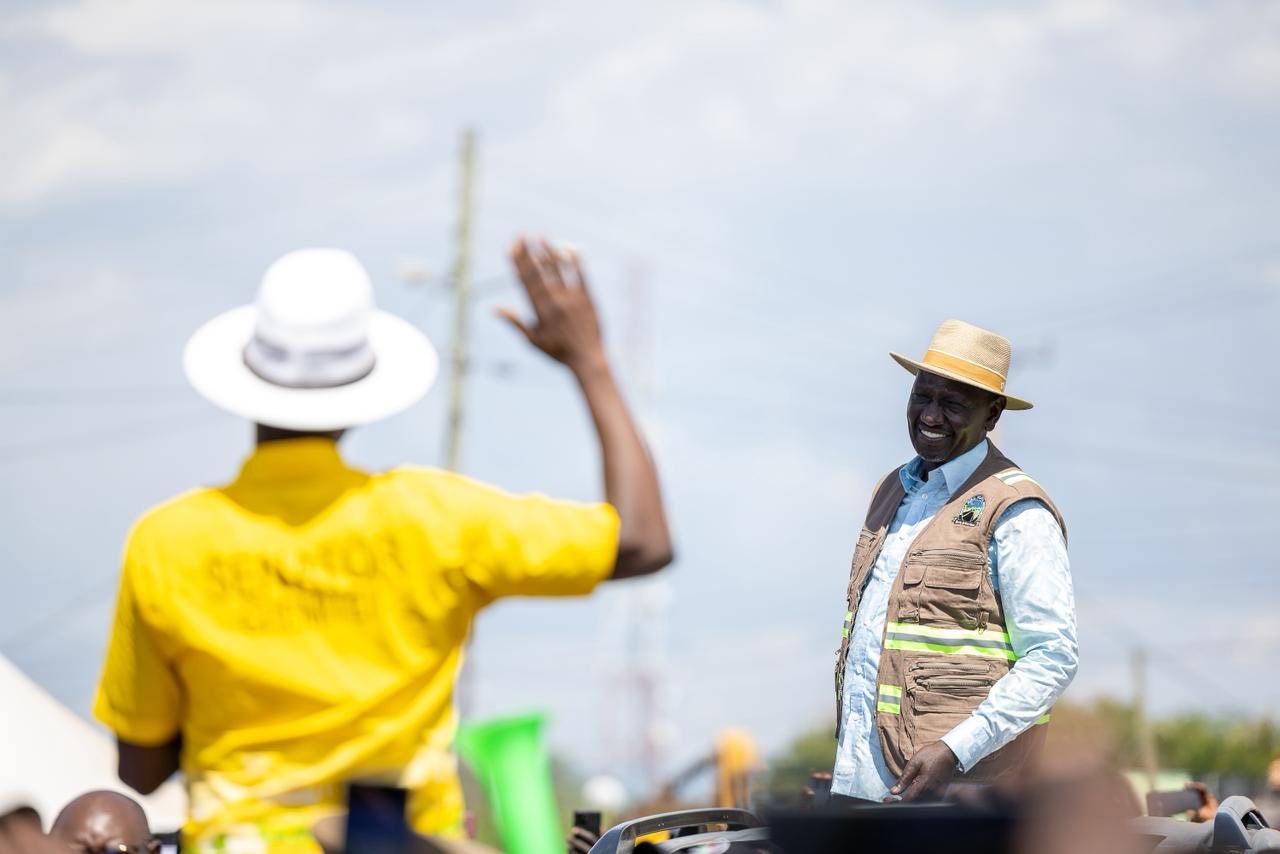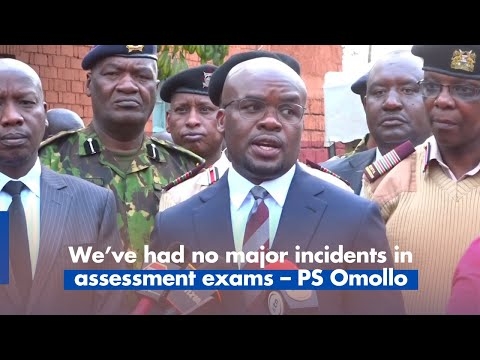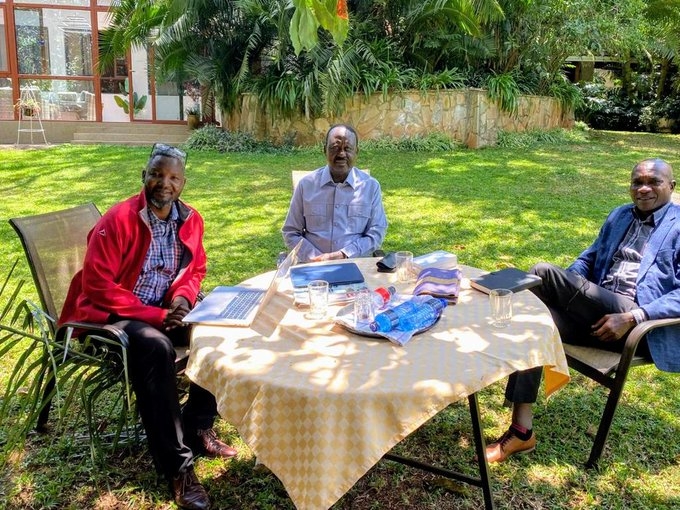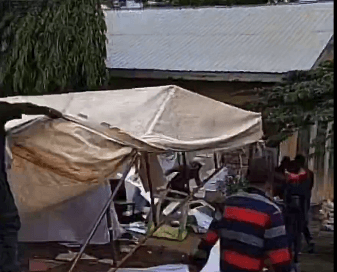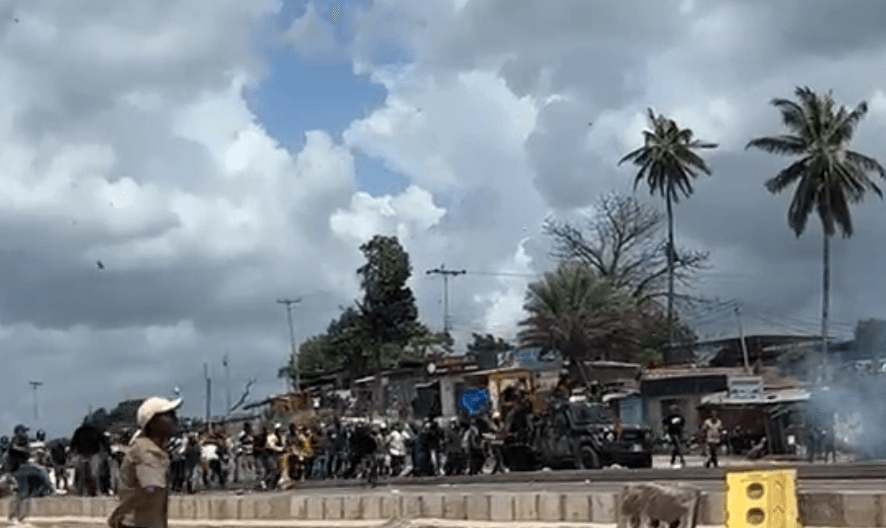The National Police Service has for decades dreamt of constructing their own hospital to cater for serving and retired personnel.
The service has on a yearly basis since 2000 advertised tenders for the construction of the facility probably in Nairobi even as their personnel continued to get injured and others died because of lack of proper medical attention.
Now with a contribution of just Sh50 from each junior officer, the Administration Police Service is building its own 160-bed hospital to cater for their personnel.
The service is using a welfare fund collected for almost a year to kick start the project that will be completed this year.
The hospital is under construction at the Border Patrol Unit campus in Kanyonyo, Kitui county.
President Uhuru Kenyatta toured the upcoming facility in November 2020 and pledged to have the hospital completed this year in addition to increased investment in the service.
During the visit, he expressed admiration for how the service had managed to build the facility and urged others to emulate them.
“When others get even small funding they misuse it. How did you manage this without our support? I am impressed,” the President said.
The construction started last year when APS Deputy Inspector General of Police Noor Gabow and his team met and decided to invest a contribution from the personnel in the project.
“There was a huge chunk of land in Kanyonyo already secured for the APS and they decided to invest the welfare money there. It is coming up well and will be a saviour for all,” said an insider.
Gabow said their move will pay soon when the hospital starts operations. He said they are using APS personnel as masons, plumbers and even architects, which is cheaper.
“We use our own personnel for the work. We have also been getting help from National Youth Service with their excavators,” he said.
They have been sourcing construction materials from Thika, Nairobi, Machakos and Naivasha.
“We hope to have this project up and running by the end of the year to help locals and the personnel,” he added.
He could not say how much they have spent so far on the project and what the facility will cost.
Gabow said the APS will deploy 150 medical personnel to the facility. “These will be our doctors and we will get others from outside. We are set,” he said.
President Kenyatta pledged that the hospital will be fully equipped to cater for the needs of the officers.
The hospital was initially meant to attend to officers injured in the frontline especially at the Kenya-Somalia border but now officials say all personnel even those from other places including Nairobi will be referred there.
NPS has been taking their injured personnel to the Kenya Defence Forces Memorial Hospital in Nairobi and private facilities. The KDF hospital is at times overwhelmed because it is small.
When completed, the police hospital will be a huge relief for the service and will open up Kanyonyo area.
Construction of the hospital follows President Kenyatta’s order for changes in the operations of the units within the National Police Service.
The APS is now completely specialised on its core mandate that includes border patrols, guarding critical infrastructure and dealing with stock theft.
Under the new structure, the APS has formed units that include the Special Weapons and Tactics team, the Camel Unit, Rapid Deployment Unit, Border Police Unit, APS Stock Theft Prevention Unit and Critical Infrastructure Protection Unit.
Past police bosses had been saying they intended to construct a 300-bed referral hospital that would cater for both serving and retired officers.
The plan, according to Inspector General of Police Hilary Mutyambai, is still on course. He said the facility will be a level six hospital to address main issues for their personnel and others.
Former Inspector General of Police Joseph Boinnet said in 2016 the land near the Inland Container Depot that had been identified for the construction of the hospital was taken by the Standard Gauge Railway, delaying plans for the facility.
He said then land had been identified and plans have been approved with funds for the same. But nothing has happened five years later.
In December 2000, Internal Security minister Marsden Madoka told Parliament that police were working to “put up their own hospital where police officers can be helped when they are sick.”
Later on, police authorities announced they had identified land near Kenyatta National Hospital for the construction of the facility.
“National Police Service intends to commence construction of the National Police Referral Hospital, which is a key government priority project, on a piece of land within the Kenyatta National Hospital as approved by Cabinet. The main objective of the project is for the police officers and their families to access quality, accessible and affordable healthcare,” read an advert put up in 2018.
They argued that ever since Kenya attained independence from Britain in 1963, police officers had never had a dedicated health facility to attend to officers and their dependents whenever they fell sick or got injured in the course of their duties.
“The upshot of this situation is that police officers and their dependents have been forced to seek medical attention in civilian health facilities, which are often themselves invariably overwhelmed by the sheer number of patients that flock those hospitals to access affordable medical care on a daily basis,” added the advert.
It said the government was desirous of constructing the first 300-bed (level 6) National Police Service Referral Hospital in Nairobi to exclusively cater for the needs of the police and their families through a government grant. The project is however yet to take off.





